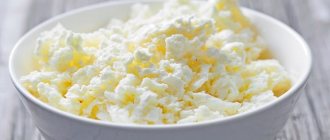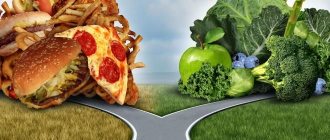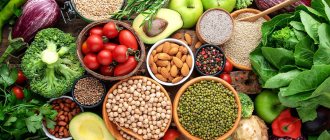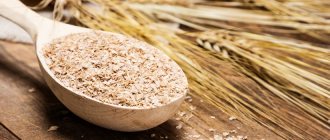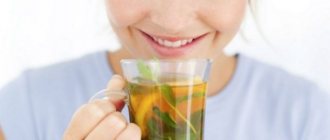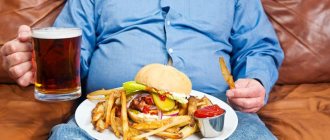Vitamin A or retinol
Vitamin A is a fat-soluble substance essential for healthy vision and skin. Retinol supports the conjunctiva and cornea, helps skin and bone cells divide and renew. The substances from which vitamin A is formed are called carotenoids.
They are found in vegetables: for example, one medium-sized carrot is enough to cover 100% of the daily intake of vitamin A. So its deficiency is very rare. But excess retinol, on the contrary, is harmful. It can cause nausea, vomiting and headache.
Salmon
This nutritious fish is rich in several B vitamins.
Here is what % of the recommended daily intake contains 100 grams of boiled salmon:
• Thiamine (B1): 18%
• Riboflavin (B2): 29%
• Niacin (B3): 50%
• Pantothenic acid (B5): 19%
• Pyridoxine (B6): 47%
• Cobalamin (B12): 51%
In addition, salmon is a fish high in omega-3 polyunsaturated fatty acids and is also rich in protein and selenium.
Vitamin B1 or thiamine
B vitamins are water-soluble substances necessary for the normal functioning of metabolism and the nervous system. They do not accumulate in the body, so it is important to replenish their reserves every day.
Vitamin B1 plays a key role in our metabolism: it helps body cells convert carbohydrates into energy. Thiamine is also involved in muscle contraction and nerve impulse transmission. Sources of vitamin B1 include whole grains, meat and fish. It is often added to breakfast cereals, rice or bread.
One average serving of meat contains more than 30% of the daily value of thiamine.
Trout
Freshwater trout is not much inferior to salmon in terms of the content of B vitamins.
A 100 gram serving of steamed trout provides the recommended daily intake:
• Thiamine (B1): 28%
• Riboflavin (B2): 25%
• Niacin (B3): 29%
• Pantothenic acid (B5): 22%
• Pyridoxine (B6): 12%
• Cobalamin (B12): 125%
In addition, trout is an excellent source of protein and is rich in omega-3.
Vitamin B3, PP or niacin
Niacin is also an important participant in energy metabolism in the body. It supports the functioning of the nervous and digestive systems, as well as skin health. Most people get enough vitamin from food, because it is found in many common foods: meat, fish, milk, eggs, vegetables and cereals. Our body can synthesize it itself from tryptophan: this is an amino acid found in protein foods.
However, a high dose of niacin causes unpleasant symptoms: nausea, vomiting, abdominal pain and diarrhea. So no matter how useful it is, you should be careful when adding it to your diet.
5 common digestive problems and how to solve them
Pork
Like other types of meat, pork contains several B vitamins. It even exceeds beef in terms of thiamine (B1) content.
Boiled or fried pork fillet, weighing 100 grams, gives the daily intake:
• Thiamine (B1): 69%
• Riboflavin (B2): 24%
• Niacin (B3): 24%
• Pantothenic acid (B5): 9%
• Pyridoxine (B6): 27%
• Cobalamin (B12): 14%
Brisket has much less fat and calories than ribs and bacon.
Vitamin B6 or pyridoxine
This vitamin helps with the production of antibodies and hemoglobin: this is important for the immune and vascular systems. We need antibodies to fight bacteria and viruses, and hemoglobin is involved in the transport of oxygen in the blood.
The most vitamin B6 is found in fish, beef liver, and potatoes. Almost all fruits are rich in it, except citrus fruits. So its deficiency is also extremely rare, and an overdose causes serious consequences, including ataxia. With it, control over movements is lost.
Vitamin B7 or biotin
Biotin is needed by the body for the metabolism of fatty acids, glucose and amino acids, and it is also very important for gene function. Biotin is most often found in food bound to proteins, although sometimes it can be found in free form.
Omega 3 and 6 fatty acids
It can be found in eggs, fish, meat, seeds and nuts. But in fact, it is not yet completely clear whether people need additional biotin, because intestinal bacteria are able to synthesize it.
Biotin deficiency is extremely rare: it has never been found in healthy people with a normal, varied diet.
Vitamin B9, folate or folic acid
Folates are essential for cell division and are especially important during pregnancy. Its deficiency during this period can lead to defects in the development of the child’s brain or musculoskeletal system.
Folic acid is often found in foods: it is found in green vegetables, fruits, beans and nuts. Vitamin B9 is often added to bread and other grain products. Of the fruits, the richest fruits are oranges, lemons, bananas, melons and strawberries.
For example, a serving of spinach contains 33% of the daily value of folate.
Folate deficiency is rare. But during pregnancy, women are sometimes advised to take additional folic acid until about 12 weeks. It is also often prescribed to women during menopause to relieve unpleasant symptoms and reduce the risk of developing tumors.
Folate cycle genes. Where is the myth and where is the reality?
However, you should consult your doctor before using any folate supplements.
Beef
Although it is not recommended to consume too much meat, it also contains B vitamins.
Thus, a 100-gram serving of fried beef fillet contains the recommended daily intake:
• Thiamine (B1): 5%
• Riboflavin (B2): 8%
• Niacin (B3): 39%
• Pantothenic acid (B5): 6%
• Pyridoxine (B6): 31%
• Cobalamin (B12): 29%
Vitamin B12 or cobalamin
Vitamin B12 is needed for the formation of red blood cells: blood cells that carry oxygen. It is involved in metabolism inside the cell, in the functioning of the nervous system and DNA synthesis. Our bodies usually store an adequate supply of vitamin B12, so deficiency is rare. Most people get enough B12 from their regular diet. It is found in animal products.
Just one boiled egg already contains 25% of the daily value.
But if you are a vegetarian, it is better to monitor your levels because plant foods do not contain this vitamin. To increase its content in the diet, you can consume special vegan products: for example, soy milk or cereal fortified with the vitamin.
Vitamin PP (Niacin)
Vitamin PP or niacin. Vitamin PP is involved in redox reactions in the cells of the body, regulation of higher nervous activity, and protein metabolism. An adult needs about 19 milligrams of niacin per day.
What foods contain vitamin PP: Vitamin PP is found in products of animal origin: poultry (6-8 mg/100g), beef (5 mg/100g), lamb (4 mg/100g), pork (3mg/100g), liver (9-12mg/100g). Vitamin PP is also found in products of plant origin, but in difficult-to-digest forms: in wholemeal wheat bread (3 mg/100g), buckwheat (4 mg/100g), legumes (2 mg/100g).
Compared to other vitamins, niacin is more resistant to heat cooking - within 15-20% of the vitamin is destroyed. A deficiency of vitamin PP can occur in people whose diet does not contain meat products, and whose diet mainly consists of grain products. With acute chronic deficiency of vitamin PP, pellagra develops, a disease manifested in skin lesions. The reason is that grain products contain niacin mainly in a bound form, which is not absorbed by the human body. The bound form of niacin is absent in animal products and legumes.
To exclude hypovitaminosis PP, it is recommended to include more meat products in the diet during the period when the need for the vitamin increases sharply (especially in spring). The essential amino acid tryptophan, which is part of animal proteins, can be used by the body to synthesize vitamin PP. It takes 60 milligrams of tryptophan to form 1 milligram of niacin. Therefore, including high-protein foods in your daily diet can compensate for the lack of this vitamin in other foods. Taking this feature into account, the content of vitamin PP in food products can be expressed in “niacin equivalent”, taking into account the tryptophan content.
When recalculating the vitamin value of products taking into account the tryptophan content, it turns out: milk contains vitamin PP (0.10 mg/100g), tryptophan (50 mg/100g), the final niacin equivalent is narrower (0.94 mg/100g); beef contains vitamin PP (4.7 mg/100g), tryptophan (210 mg/100g), niacin equivalent (8.2 mg/100g); eggs contain vitamin PP (0.19 mg/100g), tryptophan (204 mg/100g), niacin equivalent (3.6 mg/100g).
Vitamin D
This vitamin is needed to regulate the amount of calcium and phosphate for healthy teeth, bones and muscles. It is also involved in the functioning of the immune and musculoskeletal systems. Vitamin D is almost not found in foods, mainly only in fatty fish such as salmon or tuna.
The Complete Guide to Calcium
But our body can produce it independently with the help of sunlight. Even if you spend even a short time in the sun every day, that's enough. However, if you live in a place where there is little sunshine, you may want to check your vitamin D levels.
Vitamin E
In fact, behind this name there is not just one vitamin, but a whole group of substances. Their main role: antioxidants. They help maintain healthy skin and eyes, and strengthen the immune system to resist infections.
Vitamin E is found in vegetable oils, nuts and seeds. For example, a handful of regular sunflower seeds contains about half the required daily dose of this vitamin.
Vitamin E deficiency is rare because it is simply obtained from the normal diet. However, sometimes people with liver disease or Crohn's disease need additional doses. But this is determined by the attending physician.
Breakfast cereal (fortified)
Breakfast cereals often contain additional vitamins, including the B vitamins thiamine (B1), riboflavin (B2), niacin (B3), pantothenic acid (B5), pyridoxine (B6), B9 (as synthetic folic acid), and cobalamin (B12).
Some cereals contain 25 to 100% of the daily recommended intake of these vitamins. You can see them in the list of ingredients.
It's worth noting that many fortified breakfast cereals contain a lot of sugar and refined grains.
It is important to choose cereals that are made from whole grains and contain minimal sugar.
Vitamin K
This vitamin helps your blood clot, so it's very important for healing wounds. Vitamin K is involved in protein synthesis and strengthens bones and body tissues.
There are several types of vitamin K, but they are fairly easy to get from leafy greens, vegetables, vegetable oils, and fruits. For example, a serving of spinach or broccoli will provide enough vitamin to meet your daily requirement. Some vitamin K is produced by the intestinal microbiota. However, it can be stored in the liver, so there is no need to add it to the diet every day.
Form
Milk
240 ml of milk, 3.25% fat, provides 26% of the recommended daily intake of riboflavin (B2), as well as other B vitamins:
• Thiamine (B1): 7%
• Riboflavin (B2): 26%
• Pantothenic acid (B5): 9%
• Cobalamin (B12): 18%
Milk and other dairy products tend to be the main source of riboflavin, with slightly less found in meats and grains.
And vitamin B12, according to a study conducted at the Institute of Food Sciences (Bern, Switzerland), is better absorbed from milk and other dairy products - the absorption level is 51-79%.

